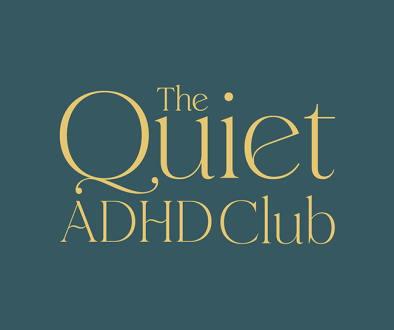Understanding ADHD medication: a guide for couples

Understanding ADHD medication: a guide for couples
ADHD medications can be a powerful tool in managing symptoms and improving the quality of life. This can have a significant impact on relationships, too. Here’s a guide to what to consider.
Understanding ADHD medication concerns
Before you even think about types and dosage, it’s natural to have reservations about starting medication overall. Some people worry about the stigma associated with taking medication. There can also be a desire to be “natural” and avoid anything that might be perceived as altering your personality. Additionally, some might fear that medication will fundamentally change who they are or how they experience the world.
However, it’s important to weigh these concerns against the challenges of unmanaged ADHD. Chronic inattention, impulsivity, and disorganisation can significantly impact your daily life, career, and relationships. Medication can help you function at your best, allowing you to be the person you want to be in a more consistent way.
It’s also important to remember that most ADHD medications have a short half-life, meaning they leave your system relatively quickly.
This allows you to see how you react without a long-term commitment. If you experience any side effects, your psychiatrist can adjust the dosage or try a different medication altogether. Open communication with your GP and psychiatrist is key to finding the best approach for you.
Types of medication
There isn’t just one type of medication for ADHD. They can be categorised into two key types.
- Stimulants. These medications take effect quickly (around an hour) and last for eight hours. They can help improve focus, reduce procrastination, and enhance executive function (planning, organising).
- Non-Stimulants. These medications take longer to show results but can offer sustained benefits.
Getting a prescription
Unfortunately, accessing ADHD medication through the NHS can involve waiting times. These vary greatly depending on your location. While some areas might offer relatively quick assessments and medication initiation, others could have waiting times stretching into months or even years.
This can be frustrating, but there are resources available to help you navigate the system (such as NHS Right To Choose). Talking to your GP can provide a clearer picture of wait times in your area and potential next steps. You can also find information and support online through organisations like ADHD UK.
Finding the right fit
It can take some trial and error to find the right medication solution for you. There are several factors in finding this balance.
- Titration. A qualified clinician will carefully adjust the medication type and dosage (titration) to ensure it works best for your specific needs. This process can take up to six months.
- Shared care. Once the right medication and dosage are established, a shared care plan can be set up between your psychiatrist and GP, allowing refills through the NHS.
- Yearly checkups. Regular consultations with your psychiatrist are crucial to monitor the medication’s effectiveness and address any potential side effects.
The “windscreen wiper effect”
The “windscreen wiper effect” is the ideal scenario where medication helps clear brain fog and improve focus without causing lethargy or procrastination. Not everyone experiences this, but it’s a potential benefit.
Imagine this. You wake up feeling foggy and scattered. Simple tasks take ten times longer than they should, and staying focused is a huge challenge. Then, you start taking medication, and it’s like a magic screen wiper clears away the mental fog. Suddenly, you can concentrate with laser-like focus, prioritise tasks efficiently, and enjoy getting things done.
Even if you don’t experience the full-blown windscreen wiper, medication can still make a significant difference. It might help you reduce procrastination, improve your ability to follow through on plans, and boost your overall sense of accomplishment. The key is to approach medication with an open mind. It might be the missing piece that unlocks a whole new level of productivity, focus, and satisfaction in your life.
Combination therapy
While some people experience success with the first medication they try, others might need to explore different options or even combine medications to achieve optimal results. This is where combination therapy comes in. Combining ADHD medication with antidepressants or other medications can address a broader range of symptoms, for instance, if anxiety or depression are also present alongside ADHD.
However, navigating combination therapy requires open communication with your psychiatrist and ongoing monitoring. It’s important to notice how the medications interact with each other and how they affect your daily life. Your partner can be a valuable asset in this process by helping you track your moods, energy levels, and focus.
Remembering refills
Developing a system for medication refills is essential to avoid disruptions in your routine. Create reminders to ensure you don’t run out. This will avoid any anxiety and emotional dysregulation around running out of meds, which can be upsetting.
Flexible dosing
The good news is that ADHD medication isn’t necessarily an everyday commitment. You and your psychiatrist can discuss a schedule that best suits your needs. You might choose to take it on specific days or during times when focus and organisation are crucial.
Side effects
Everyone reacts differently to medication. While some experience no side effects, others might encounter issues like reduced appetite or trouble sleeping. Yearly checkups allow for adjustments and ensure the benefits outweigh any drawbacks.
This is a good jumping-off point to discuss ADHD medication and its potential impact on your relationship. However, it’s important to note that it’s only an overview. It’s always best to consult your psychiatrist for advice.
Navigating ADHD medication as a couple
Deciding on medication can be a team effort within your relationship. Talk openly about your concerns and hopes for how medication might impact your life together. If you decide to pursue medication, your partner’s support will be crucial. This could involve helping you remember to take your medication or attending appointments with you.
Open communication is key – be honest about any side effects you experience and how you’re feeling overall. Your partner can also be a source of encouragement and celebrate your successes as you manage your ADHD. By working together, you can navigate this process and build a strong, supportive relationship.



